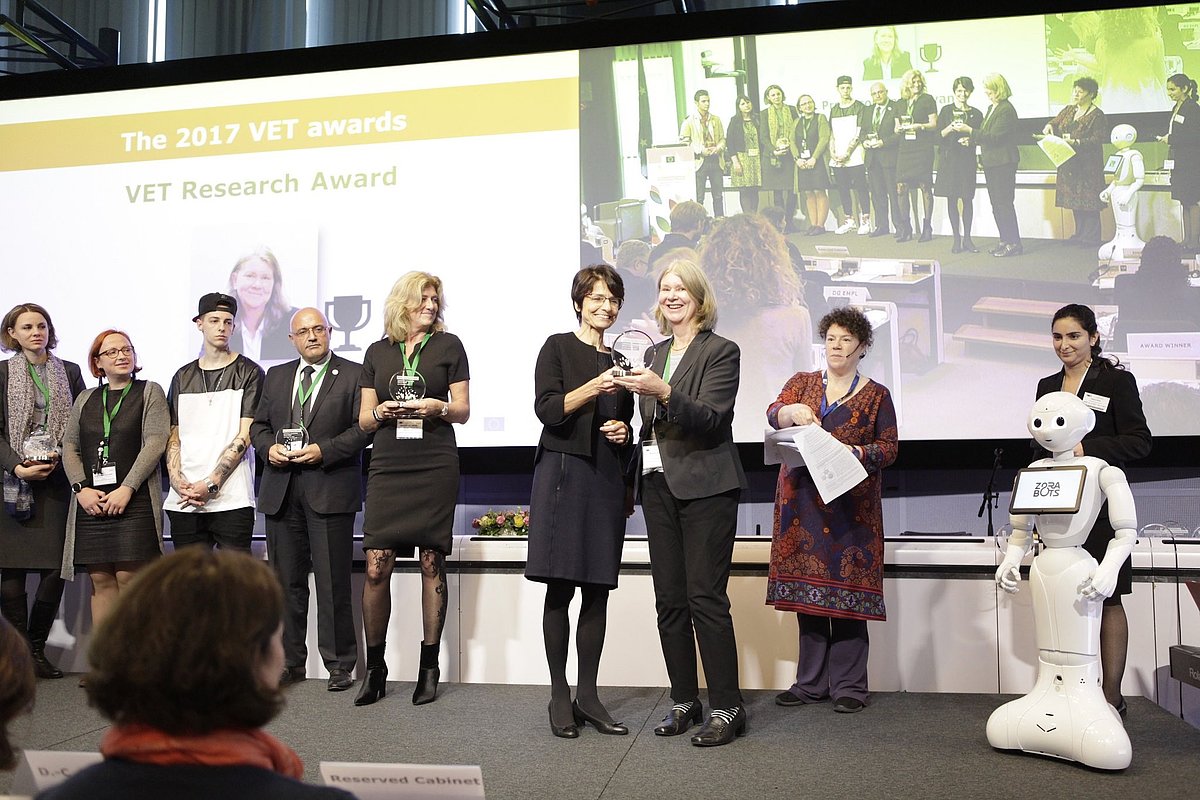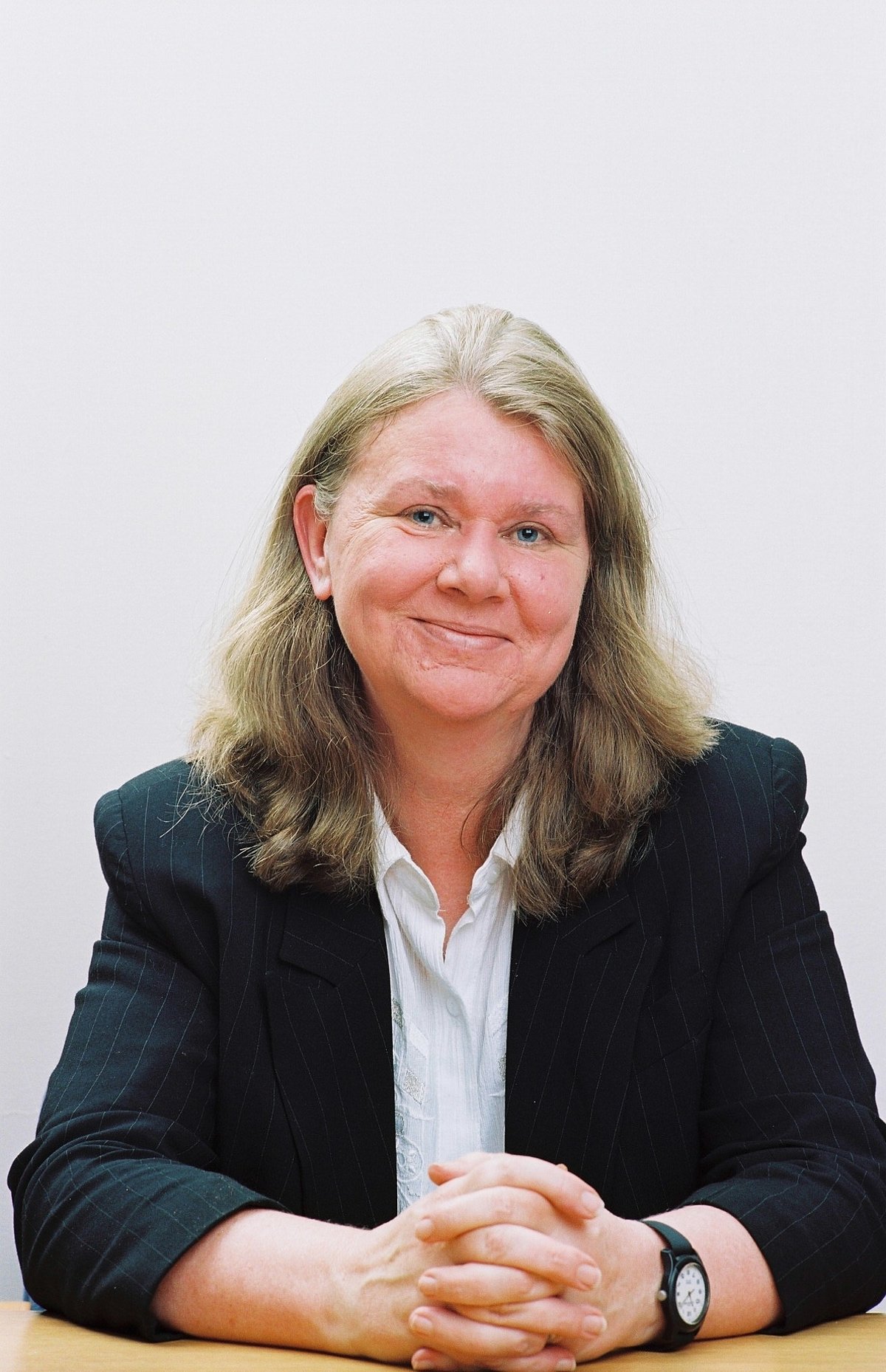
At the European Vocational Skills Week 2017, taking place on 20-24 November in Brussels, the European Commission awarded Em. Prof. Dr. Karen Evans with the Vocational education and training (VET) Research Award of the European Commission.
Karen Evans is Emeritus Professor of Education at the Institute of Education of the University of London; Honorary Professor in the Economic and Social Research Council LLAKES Centre for Learning and Life Chances; and Honorary Professor at RMIT University Melbourne, Australia. Karen Evans’ main fields of research are learning in life and work transitions, and learning in and through the workplace. She has directed many major studies of learning and working life in Britain and internationally, including the Work-Based Learning Centre for Education Professionals and Professionals who Educate. She is currently editor (with Andrew Brown) of the Springer Lifelong Learning Series and was previously joint editor of the journal COMPARE. She is also a Fellow of the Academy of Social Sciences (FAcSS).
Professor Evans outstanding VET research contribution includes, among others, the direction of major international high quality studies on learning and work in the context of VET, long-term excellent academic publication track record, major contribution to knowledge building about current and future VET, both theoretically and empirically, and a significant impact on building bridges between VET and wider societal issues and addressing key dimensions of social sciences. Karen Evans research and publications include initial, higher and continuous VET, learning at the workplace, lifelong learning, life and work transitions.
She is a long-term partner of the University of Latvia, in particular within the doctoral school “Human Capacity and Life Wide Learning in Inclusive Contexts of Diversity” leaded by prof. Irina Maslo, through close collaboration lecturing and providing consultations to doctoral students, and within the Scientific Institute of Pedagogy of the Faculty of Education, Psychology and Art, where she collaborated with Latvian scientists in the ASEM Education and Research Hub for Lifelong Learning, and gave advice about several research projects implemented at the Institute.
Dr. Fernandezs, former director of the Scientific Institute of Pedagogy, says that “Professor Evens was for me as an example of deep and innovative theoretical thinking combined with a very practical, common-sense and person-centred approach. I reread recently some notes of the lecture “Rethinking work-based learning” she did one year ago at the Institute for students of the doctoral school and the Master “Educational Treatment of Diversity”. She was exploring the nature of knowledge itself, and how employees make sense of knowledge in different contexts. She presented to us her new concepts of “knowledgeable practice”. This was a revelation for me, a new step forward that goes much further than the already traditional “competence approach” in education.
She explained that the heart of “knowledgeable practices” is the person’s “attuned and responsive judgment” when confronted to new situations and when different kinds of knowledge come into play. She emphasized that the “unknown´ situation is also made of social relations: the “new people” who works with you, not only about new tasks or external circumstances. I saw in this concept a modern, improved version of the Greeks’ phronesis (practical wisdom) in workplace learning contexts. She explained how knowledgeable practice can be developed by “remaking and re-questioning everyday practices” and “working-around” day-to-day problems at work
She spoke about many other things: the importance of having academic programs that allow students to learn from each other through activities; the “defensive practices” of students to whom “difficult learning process” are imposed; the importance of combining both cycles of theory-to-practice (deduction) and practice-to-theory (induction); the distinction between “work-transcendent” learning (at school), “work-related knowledge” (in HE) and “work-located” learning (in the workplace), and how work located learning includes enculturation (“we do it so here”), competence, innovation, ethics and vocational identities; the difference between “adaptive” and “productive” knowledge recontextualization, etc.
Among her practical contributions for us, she suggested two methods that support the acquisition of knowledgeable practices that could be useful in Latvia in the context of preparing future teacher generation: “knowledge-aware” mentorship (wise, deeply personalized mentorship of future teachers), and “structured peer-learning” (embedded in pre-service practice). She also stressed the importance of personal relationships in learning, which makes the difference between “learning-poor” and “learning-rich” environments: Is students’ voice heard ? Are there hidden mechanisms of exclusion/inclusion ? I think that it is worthwhile to take these suggestions into account.”
More information:
About Karen Evans European Vocational Skills Week, 20-24 November 2017 Prof. Karen Evans awarded with the VET Research Award 2017 of the European Commission Asia-Europe Meeting, ASEM Education and Research Hub for Lifelong Learning (the ASEM LLL Hub), Research Network 2 "Workplace Learning" webpage Doctoral School „Human Capacity and Life-wide Learning in Inclusive Contexts of Diversity” webpage Karen Evans’s seminars within the doctoral school [1], [2].

 CONFERENCE
CONFERENCE
